An Afternoon at a Fishing Village in Zanzibar
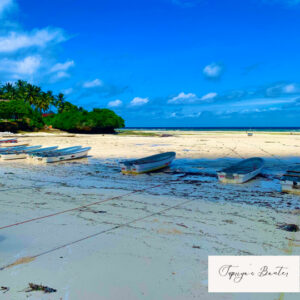
Karibu! Hakuna Matata!
Welcome! No trouble! These words seem to echo from the pearly white sands lining the shoreline of this magical, mystical island, Zanzibar. Perhaps, the first thing you hear and, in most likelihood, the last ones too, accompanied by a generous sprinkling of Asante Sana! (Meaning thank you in Swahili!)
The serene philosophy of Pole-pole is ingrained in the psyche of the islanders. No English words can do justice to this Swahili phrase, summed up as a tranquil pace, relishing life’s simple bounties.
I witnessed the ideology translate into action in a laid-back, small fishing village in Kizimkazi. 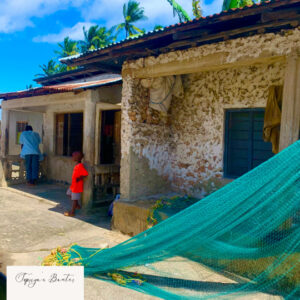
A beachy bliss
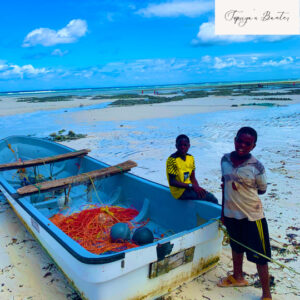
‘We learn to swim before we learn to walk,’ said our local guide and the village resident, Juma. ‘If born here, you are a foremost a fisherman, no matter what other profession you take up later.’
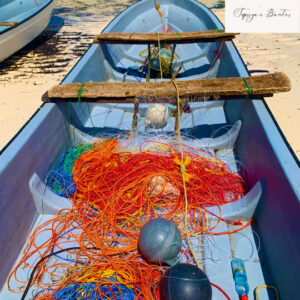
Minutes later, his statements were confirmed by a horde of children frolicking on the beach. No matter their age or size, each had eels dangling like streamers from their clutched fists.

A little girl even had a couple of those slimy creatures marinating in a salt and chili paste on a bed of clams.
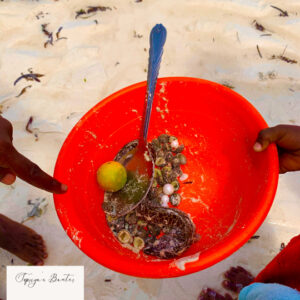
‘The low tide washes them ashore, and the kids can hunt them down with a stone,’ Juma clarified.
The long beach was bespattered with multicolor fishermen’s boats and nets, ready to scale the depth of the Indian Ocean. Tangled yellow-green seaweeds flecked the blue expanse, contrasting with the white sand.
‘It’s a precious commodity here,’ Juma remarked. ‘Many companies use these in cosmetics and soaps.’
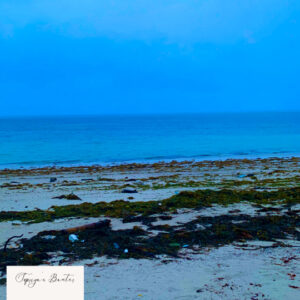
There were other intriguing articles, too, speckling the seaside—the cairns of stones lined the grounds. Multiple women dressed in kaleidoscopic colors hunched over them, engrossed in some dynamic venture.
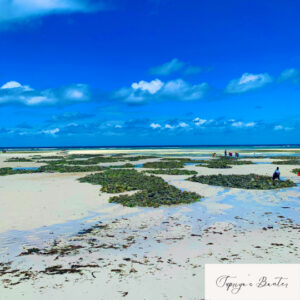
Juma soon solved the mystery.
Each rock-heap belonged to a group of women or a family and was a piece of essential machinery for making durable Tanzanian ropes—a woman-owned enterprise.
‘The women bury coconuts in the sand secured by these heavy rocks. The high tide submerges the coconut husk and fibers for extended hours, softening them enough to braid into ropes after drying.’ Juma said. He even tossed aside a few rocks to expose the concealed coconuts.
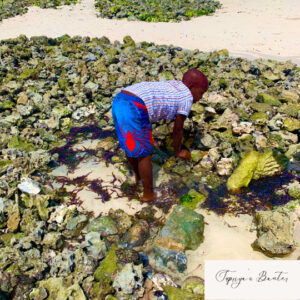
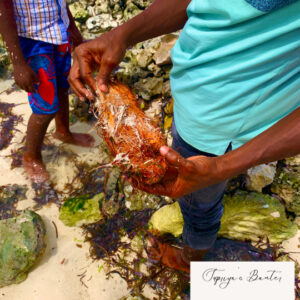
A small intersection of the beach displayed freshly caught fish. The sergeant, parrot, and swordfish dominated the scene; however, there were many other varieties. A cluster of stray cats and a gaggle of geese patrolled the area to sample a morsel of the gourmet treats.
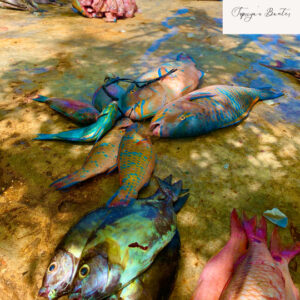
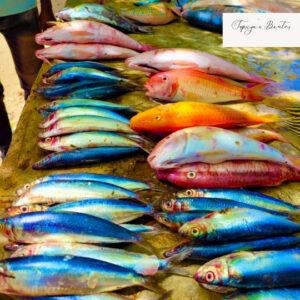
You want doors? I don’t think so!
A sedate charm pervaded the village air, reflected in the villagers’ amiable smiles and sparkling eyes.
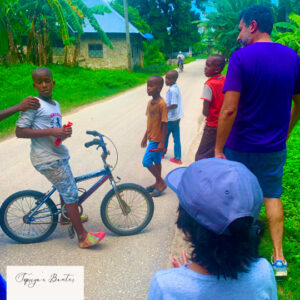
The natural world seemed at ease, too.
The palms swung like dancers, their fronds bopping like emerald plumes against the gilded clouds.
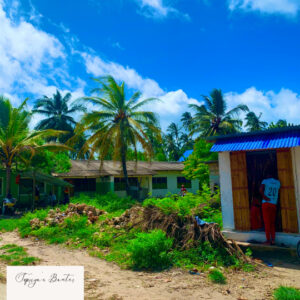
Stone houses dotted the village, with many having thin tin roofs that rattled with the wind; some had thatch roofing fashioned out of coconut fibers.
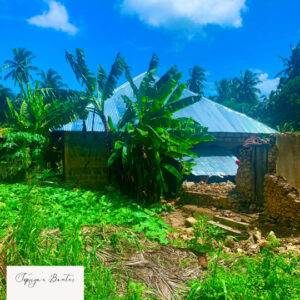
Yet most shacks had passageways and backyards shadowed by the mango and banana groves. The rustic, carved wooden doors seemed more ornamental than functional.
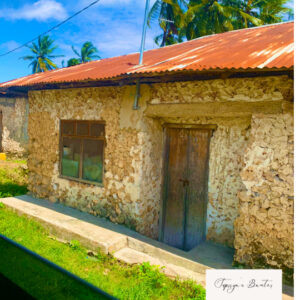
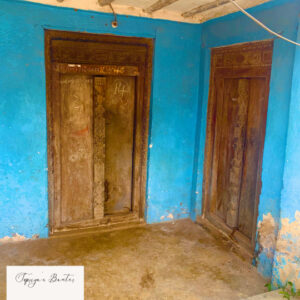
‘We don’t need to keep our houses locked. Everyone has almost the same things.’ Juma chuckled. The interiors were a peek into the daily lives. Most of the shacks were devoid of beds; people slept on the colorful handmade mats or stone parapets. A few houses had hammock-like cradles for the little ones concocted out of old fabrics.
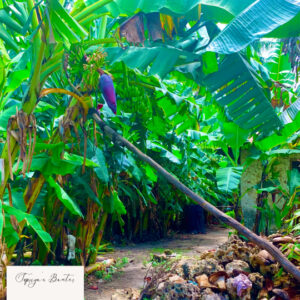
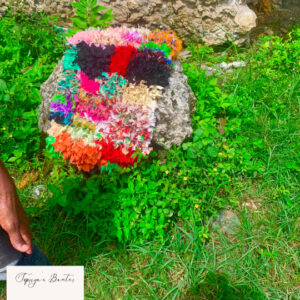
A glimpse into the past
Roaming the street of this sleepy fishing village almost felt like a journey back in time.
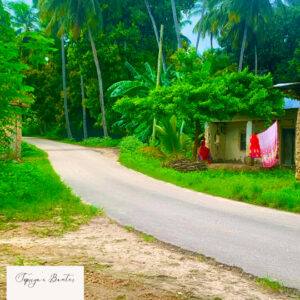
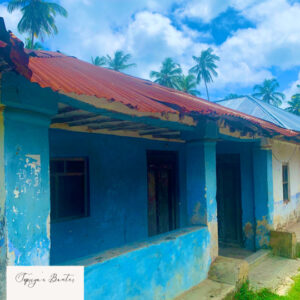
The tinkle of the bicycle bell and the clatter of a bullock- cart crunching the asphalt, clucking hens, and chirping sparrows kept us company throughout our hike.
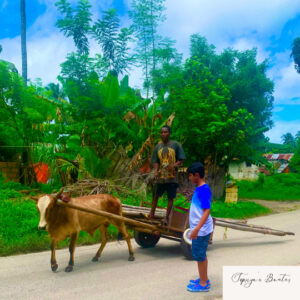
The village houses the oldest mosque in East Africa. Almost two centuries old, the Kizimkazi Mosque has been restored and renovated; however, the stones still bear Kufic and Arabic inscriptions.
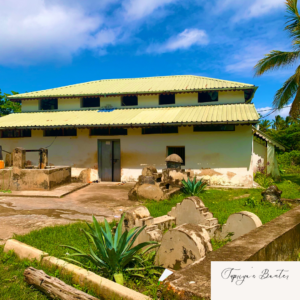

Despite being surrounded by deep blue water, the village relies on wells for its fresh water supply. My city-bred offspring yowled in excitement as Juma handed them thick coconut ropes and bright-colored plastic containers to draw water from the ancient well.
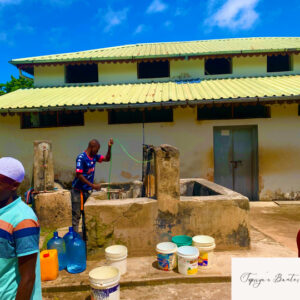
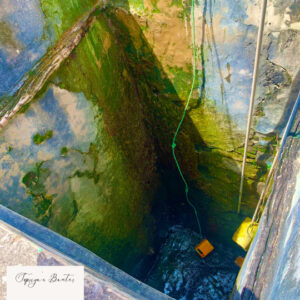
Fresh coconuts-Yes, please!
Woodlands of mango, banana, rambutan and wild date palms fringed the hutments. The green coconuts hanging by the treetops seemed enticing, and Husband decided to indulge himself.
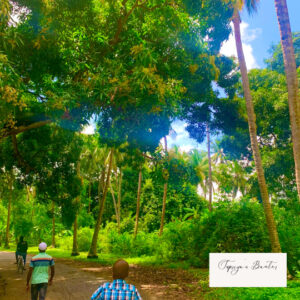
Instead of handling the coconuts from a cart, Juma nodded to a man standing by the tree. The man turned out to be a coconut climber. Our jaws slacked; eyes flew open in surprise as we watched the man scale the tall palm with deceptive ease.
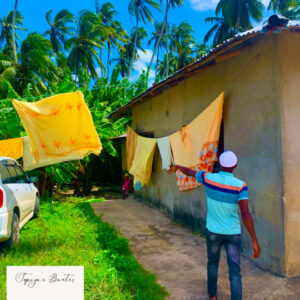
Several tender coconuts thudded next to our feet a few minutes later, whooping down from the great height. The climber soon followed suit with the grace and agility sufficient to put a cat to shame. Catch the coconut-climber in action here.
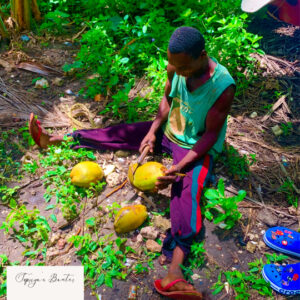
The nectarous nuts were cut open with a sharp machete; needless to say, the juice was chugged, and the creamy pulp devoured in a bat of an eye.
Keeping with the times
The Locals are adept at living in nature’s lap, acclimating to its whims and fancy. Imagine having no streetlights and fumbling into the darkness—the bordering greenery adding to the danger of a poisonous snake or a curious wild animal emerging outside. But these states of affairs do not vex a native; they go about their business, unconcerned and unaffected. Children included.
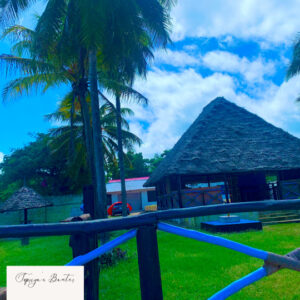
An attempt has been made to bring contemporary resources to the dwellers; the village houses a primary school, a health center, and multiple kiosks selling essentials. Yet, they have molded themselves in the inherent leisured pace of the island.
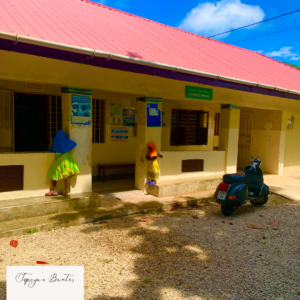
The nurse and her assistant hung out, chatting with me even when many parents waited for their kids’ vaccination.
Nobody objected or made a fuss.
The secret code of quiet composure seemed to bind them together like a sacred thread.
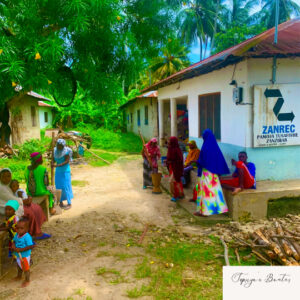
A beautiful life
The stark reminders of simple, wholesome living peppered the hamlet—like the wooden benches amassed under the mango trees for men to gather every evening for a round of chitter chatter. Or a lady parked outside her house grooming and braiding hair for girls gathered around her. Or the children accompanied by bleating calves running behind carts carrying dried grass. You were a Rafiki (Meaning brother in Swahili) if you’ve exchanged a Jambo or a smile.
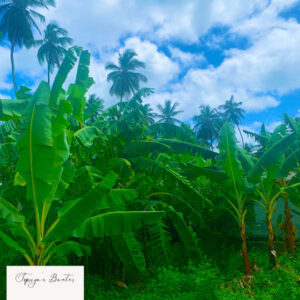
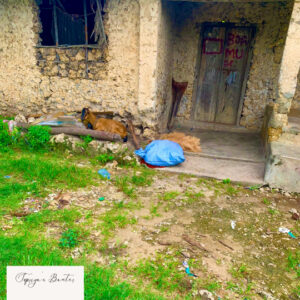
The primordial appeal of this little ocean side village where everything dances to nature’s tune, people survive by adjusting to its vagaries, jostles a way to your heart. It takes you back to an era where life was simpler yet rewarding. But fraught with uncertainty and relied on nature’s many moods.
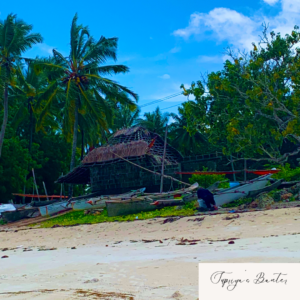
Even the time stands still, waiting like an obedient child for a nod from mother nature before rolling forward.
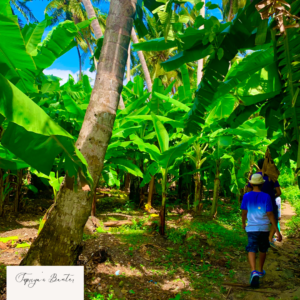
Continue Reading
You can check out my other posts chattering about this beautiful country here:
The Residence, Zanzibar-A Paradisial Stay
A Rendezvous with the Giant Aldabra Centurions—the Prison Island, Zanzibar
Jozani Chawka Bay National Park- A morning in the enchanted forests of Zanzibar
Maalum Caves-Zanzibar’s best-kept secret!
 Supriya's Banter
Supriya's Banter

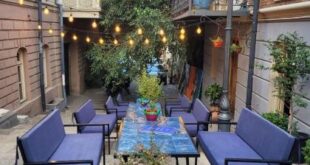

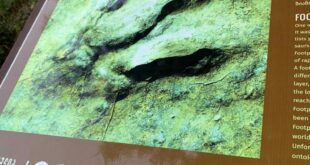
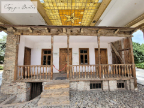

4 comments
Pingback: The Residence, Zanzibar - Supriya's Banter
Pingback: Jozani Chawka Bay National Park, Zanzibar - Supriya's Banter
Pingback: The Stone Town, Zanzibar - Supriya's Banter
Pingback: The Prison Island, Zanzibar - Supriya's Banter